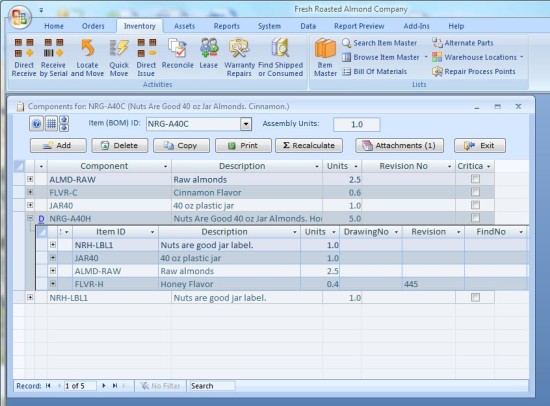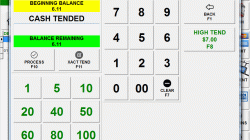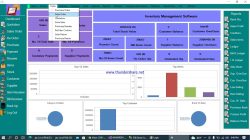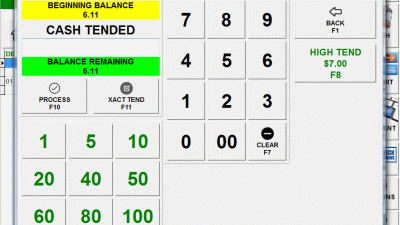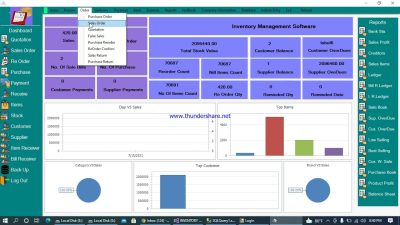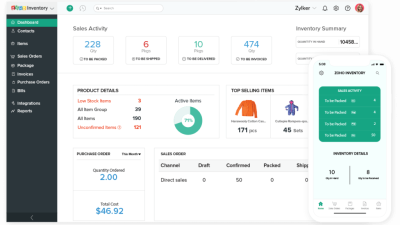
In today’s fast-paced business environment, efficient inventory management is crucial for achievement. Whether you’re running a small retail store or a large distribution center, having the right tools in place can make all the difference. That’s where inventory software comes in. Inventory software is a powerful tool that helps businesses track, manage, and control their inventory levels. It offers real-time visibility into your stock, allowing you to make informed decisions about purchasing, sales, and production. In this thorough guide, we’ll explore everything you need to know about inventory software, including its key attributes, benefits, and how to select the right solution for your business. We’ll also delve into the importance of stock management and warehouse management in optimizing your inventory operations. So, let’s dive in and discover how inventory software can transform your business!
What is Inventory Software and Why Do You Need It? Inventory software is a powerful tool designed to help businesses track, manage, and control their inventory levels. It offers real-time visibility into your stock, allowing you to make informed decisions about purchasing, sales, and production. But why is it so crucial? Imagine running a retail store without knowing how many items you have in stock. You’d likely face stockouts, leading to frustrated customers and lost sales. Or, you might overstock certain items, tying up valuable capital and increasing the risk of obsolescence. Inventory software eliminates these problems by providing a centralized system for managing your entire inventory lifecycle. It automates many of the manual tasks associated with stock management, such as counting, tracking, and reporting. This complimentarys up your time and resources, allowing you to focus on other critical facets of your business.
Key attributes to Look for in Inventory Software. Not all inventory software is created equal. When evaluating varied options, it’s essential to consider the attributes that are most crucial to your business. Here are some key attributes to look for: Real-time Inventory Tracking: The ability to track inventory levels in real-time is crucial for making informed decisions. Look for software that offers up-to-the-minute data on stock levels, locations, and movements. Barcode Scanning: Barcode scanning can significantly speed up the inventory management process. It allows you to quickly and accurately determine and track items as they move through your warehouse or store. Order Management: Inventory software should integrate with your order management system to streamline the order fulfillment process. This includes attributes such as order tracking, shipping management, and automated invoicing. Reporting and Analytics: Robust reporting and analytics capabilities are essential for determineing trends, optimizing inventory levels, and making data-driven decisions. Look for software that offers customizable reports on sales, inventory turnover, and other key metrics. Integration with Other Systems: Your inventory software should integrate seamlessly with your other business systems, such as your accounting software, e-commerce platform, and CRM. This will help you avoid data silos and streamline your operations.
benefits of Implementing Inventory Software. Implementing inventory software can bring a wide scope of benefits to your business. Here are some of the most significant benefits: Improved Inventory Accuracy: By automating many of the manual tasks associated with inventory management, inventory software can significantly reduce errors and improve accuracy. This leads to better decision-making and reduced costs. Reduced Stockouts and Overstocking: With real-time visibility into your inventory levels, you can avoid stockouts and overstocking. This ensures that you always have the right amount of product on hand to meet customer demand, without tying up excessive capital. boostd Efficiency: Inventory software can automate many of the time-consuming tasks associated with inventory management, complimentarying up your time and resources. This allows you to focus on other critical facets of your business, such as sales and industrying. Improved Customer Satisfaction: By ensuring that you always have the products your customers want in stock, inventory software can help you improve customer satisfaction and loyalty. Reduced Costs: By optimizing inventory levels, reducing errors, and improving efficiency, inventory software can help you reduce costs across your entire provide chain.
Choosing the Right Inventory Software for Your Business. With so many varied inventory software options available, it can be challenging to select the right one for your business. Here are some factors to consider: Business Size and Complexity: The size and complexity of your business will play a significant function in determining the right inventory software. Small businesses with simple inventory needs may be able to get by with a basic solution, while larger businesses with more complex needs will require a more robust system. Industry-Specific Needs: Some industries have unique inventory management requirements. For example, food and beverage companies need to track expiration dates, while apparel retailers need to manage sizes and colors. Make sure the software you select is tailored to your specific industry. Budget: Inventory software can scope in price from complimentary to thousands of dollars per month. Determine your budget upfront and look for a solution that fits your needs without breaking the bank. Scalability: As your business grows, your inventory management needs will likely change. select a software solution that can scale with your business and accommodate your future growth. Ease of Use: The optimal inventory software is easy to use and intuitive. Look for a solution that has a user-friendly interface and offers thorough training and support.
Related Post : financial reporting sofware
Warehouse Management: A Key Component. For businesses with physical warehouses, warehouse management is a critical facet of inventory control. Inventory software often includes warehouse management attributes that help you maximize your warehouse layout, track inventory movements, and improve order fulfillment. These attributes can include: Bin Location Management: The ability to assign specific locations to each item in your warehouse, making it easier to find and retrieve products. Picking and Packing: Streamlined processes for picking and packing orders, reducing errors and improving efficiency. Shipping Management: Integration with shipping carriers to automate the shipping process and track shipments in real-time. By effectively managing your warehouse, you can reduce costs, improve efficiency, and ensure that your products are delivered to customers on time.
In conclusion, choosing the right inventory software is a critical decision for any business looking to maximize its operations. By carefully evaluating your needs and considering the factors outlined in this article, you can select a solution that streamlines your inventory management, improves efficiency, and contributes to your bottom line. Embrace the power of technology and unlock the full potential of your inventory!
